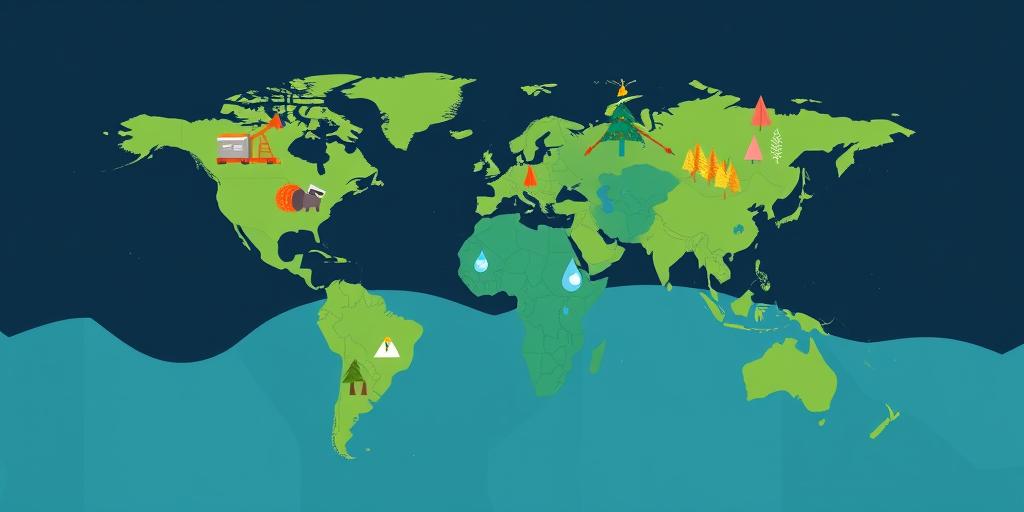The Role of Natural Resources in Geopolitics
Natural resources have always played a significant role in shaping geopolitical landscapes. From the ancient trade routes for spices and precious metals to the modern-day scramble for oil and rare earth minerals, the control and access to these resources have been central to the power dynamics between nations.
Historical Context
Historically, empires have risen and fallen based on their ability to secure and exploit natural resources. The Roman Empire, for example, relied heavily on the agricultural resources of North Africa and the mineral wealth of Spain. Similarly, the European colonial powers of the 16th to 20th centuries sought to control territories rich in resources like gold, silver, rubber, and oil.
Modern Geopolitics and Natural Resources
In the 21st century, the importance of natural resources in geopolitics has only intensified. Here are some key aspects:
- Oil and Gas: The Middle East's geopolitical significance is largely attributed to its vast oil reserves. Control over these reserves has been a source of conflict and has enabled certain nations to wield considerable influence in global affairs. The flow of oil and gas also affects international relations, trade agreements, and military strategies.
- Minerals: The demand for minerals like lithium, cobalt, and rare earth elements, which are essential for modern technologies such as electric vehicles and smartphones, has created new geopolitical hotspots. Countries with significant reserves of these minerals, such as the Democratic Republic of Congo and China, are gaining strategic importance.
- Water: Access to fresh water is becoming an increasingly pressing issue. Regions with limited water resources are prone to conflicts, and international cooperation is essential to manage shared water resources sustainably.
- Land and Agriculture: Arable land and agricultural resources are vital for food security. Nations with abundant agricultural resources have a strategic advantage, while those reliant on imports are more vulnerable to geopolitical pressures.
Geopolitical Implications
- Resource Nationalism: Many countries are asserting greater control over their natural resources, leading to resource nationalism. This can result in disputes with foreign companies and other nations seeking access to these resources.
- Conflict and Instability: Competition for resources can exacerbate existing tensions and trigger new conflicts. Resource-rich regions often experience political instability, as various actors vie for control.
- International Relations: Natural resources shape diplomatic relations, trade agreements, and alliances. Nations often form strategic partnerships to secure access to vital resources.
- Environmental Concerns: The exploitation of natural resources can have significant environmental consequences, such as deforestation, pollution, and climate change. These issues require international cooperation to mitigate and manage.
Case Studies
- South China Sea: The disputes over the South China Sea are partly driven by the potential oil and gas reserves beneath its waters. Several nations have competing claims, leading to heightened tensions.
- Arctic Region: The melting of Arctic ice is opening up new opportunities for resource extraction, particularly oil and gas. This has led to increased interest and competition among Arctic nations.
- Africa: The African continent is rich in natural resources, but many countries struggle with the "resource curse," where resource wealth leads to corruption, conflict, and underdevelopment.
The Future of Resource Geopolitics
As the global population grows and demand for resources increases, the geopolitical implications will only intensify. Sustainable resource management, international cooperation, and diversification of energy sources are essential to mitigate potential conflicts and promote stability. Technological advancements may also play a role, as new methods for resource extraction and alternative materials emerge.
In conclusion, natural resources are a critical component of geopolitics, influencing international relations, trade, and security. Understanding the dynamics of resource geopolitics is essential for policymakers, businesses, and citizens alike to navigate the complex challenges and opportunities of the 21st century.









